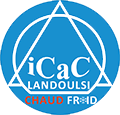Similarly, various trading methods have revolutionized buying and selling by providing platforms that prioritize anonymity and cut back market influence. A dark pool is a personal monetary forum or trade principally used by institutional investors for trading financial devices like securities and derivatives. Dark pools, also referred to as black swimming pools, are not accessible by the basic public and don’t show their trades, unlike the basic public inventory market.

The transparency that darkish swimming pools provide help to reduce worth volatility available in the market. This means that dark pools have far less impression on inventory market movements than public exchanges. Darkish pool liquidity is the trading quantity created by institutional orders executed on personal exchanges; details about these transactions is usually unavailable to the common public. The bulk of darkish pool liquidity is created by block trades facilitated away from the central inventory market exchanges and performed by institutional traders (primarily funding banks). Trading in dark pools lets massive institutional traders execute significant trades privately, minimising market impact and achieving favourable pricing.
How Do Dark Pools Affect The Average Investor?

This shared model ensures members have entry to liquidity from a wider range of sources, which boosts buying and selling opportunities and execution reliability. These darkish swimming pools provide users with the opportunity to commerce securities on a secondary market with much lower fees. For the most half though, we nonetheless predominantly see dark pools being utilized by institutional traders who’re executing block trades when taking up a large investment position. It is amongst the largest darkish swimming pools on the planet and presents institutional traders a high level of anonymity and liquidity. In New York Inventory Exchange, these various trading methods provide off-exchange trading opportunities for investors while complying with regulatory necessities.
These orders may be purchase or sell orders, usually involving vital share volumes. Company brokers function as impartial third parties solely on executing shopper trades. With Out proprietary buying and selling actions, these dark pools avoid conflicts of curiosity, making them a preferred option for clients who want assurance that the platform has no vested interest in trade outcomes. Monetary markets are complicated systems made up of interconnected exchanges, firms, market makers and numerous participants who influence and depend upon each other. For novice merchants, the initial focus is usually on understanding buying and selling devices, liquidity levels and current market costs.
They are personal buying and selling platforms in the inventory market, the place large institutional investors Prime Brokerage can commerce securities anonymously, outside of public exchanges. The pool operator matches patrons and sellers based on various components, such as the value of the safety and the time of the order. The trade is executed, and the transaction is reported to the parties involved once a match is made. This lack of transparency has led to concerns about market manipulation, however proponents argue that it permits for large trades with out market disruption.
Are Dark Pools Actually Legal?
- Commerce particulars, similar to worth and quantity, aren’t disclosed to different market participants till after the transaction is accomplished, and in some circumstances, not disclosed at all.
- Since darkish pool individuals do not disclose their trading intention to the change earlier than execution, there is not a order e-book seen to the public.
- If a portion of the order reaches the basic public trade, it turns into seen, however the major order in the dark pool stays undisclosed, preserving the majority of the trade’s confidentiality.
- These are designed to function neutral platforms catering to diverse purchasers looking for discreet trade execution.
Due to the whole lack of transparency, darkish pools have been a subject of controversy since their existence. Concealing a majority of the trading https://www.xcritical.com/ quantity isn’t a desirable property in relation to any market. Darkish pools may additionally be helpful in illiquid cryptocurrency markets, as they allow traders to execute larger trades with no slippage. Whereas a large order might have a substantial influence on an illiquid market, the identical commerce may be executed in a dark pool without slippage. Utilizing dark pools allows institutions to position orders and make trades with out publicly revealing their intentions first.
Most on an everyday basis retail buyers buy and promote securities with out ever impacting the worth of the underlying security since there are so many outstanding securities on the secondary market. Nevertheless, an institutional investor possesses the buying energy to purchase or sell enough securities to really move the costs of the securities. Dark pools are most favorable for institutional investors who are executing block trades – maybe when taking a really large place in an investment. A darkish pool is a monetary trade or hub that’s privately organized where trading of financial securities is held. Dark swimming pools are in stark distinction to public financial trade markets, where there’s a excessive degree of regulation and media consideration. However there have been cases of unlawful practices such as front-running, insider buying and selling and worth distortion in darkish swimming pools.
Eventually, HFT turned so pervasive that it grew increasingly troublesome to execute large trades via a single trade. As A Result Of giant HFT orders needed to be spread amongst multiple exchanges, it alerted trading rivals who could then get in front of the order and snatch up the stock, driving up share costs. Darkish pools work by having broker-dealers or other parties, corresponding to stock exchanges, arrange private digital venues to conduct trades. Critics argue that the dearth of transparency can lead to unfair market conditions.
In distinction to darkish swimming pools, traditional exchanges are sometimes described as lit markets. Paradoxically, darkish swimming pools were initially presented as a method to avoid front-running. This course of occurs when a market participant, maybe a high-frequency dealer, takes the knowledge of an current order that can transfer the market and then makes the same transaction first to acquire higher pricing.
Tamta’s writing is both skilled and relatable, making certain her readers achieve useful perception and data. At this point, it may not be wholly clear where the advantages lie with utilizing dark pools. Properly, there are a couple of attention-grabbing advantages to using darkish pools that we want to contact on briefly.
On the other hand, advocates of dark pools insist they provide essential liquidity, and thereby allow the markets to function extra effectively. Since darkish pool members do not disclose their trading intention to the trade earlier than dark pool exchange execution, there is not any order e-book visible to the common public. Commerce execution particulars are solely launched to the consolidated tape after a delay.
These private exchanges perform in a special way from public inventory markets, offering an alternate trading system for institutional buyers seeking anonymity. Darkish pool trading has emerged as an important element in fashionable financial markets, offering institutional buyers and large-scale merchants unique alternatives for executing substantial orders. This comprehensive evaluation explores the mechanics, advantages, and strategic approaches to dark pool trading techniques. As of February 2020, there were greater than 50 dark pools registered with the Securities and Exchange Commission (SEC) in the united states Darkish swimming pools present pricing and value advantages to buy-side establishments corresponding to mutual funds and pension funds, which hold that these benefits in the end accrue to the retail traders who own these funds. However, dark pools’ lack of transparency makes them prone to conflicts of curiosity by their owners and predatory buying and selling practices by HFT companies.

